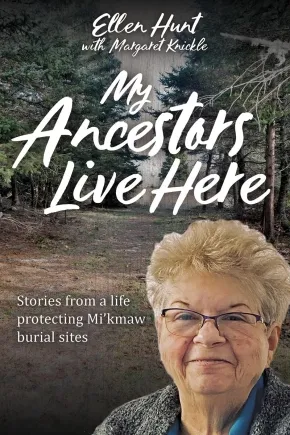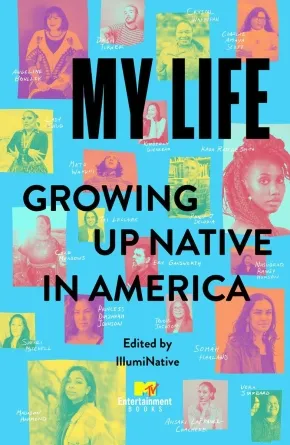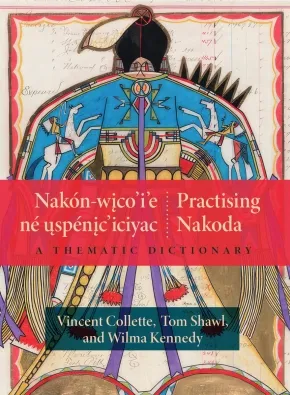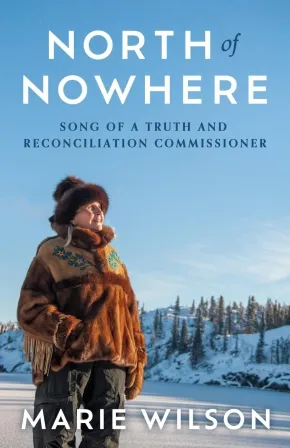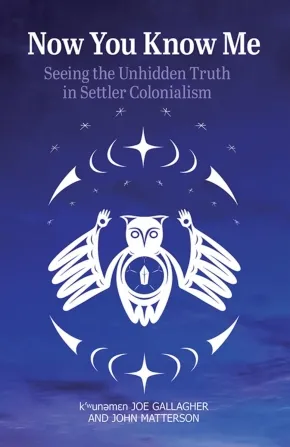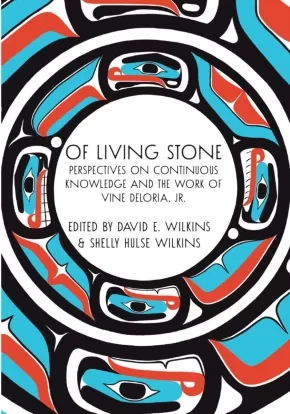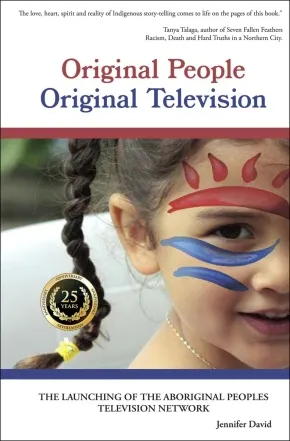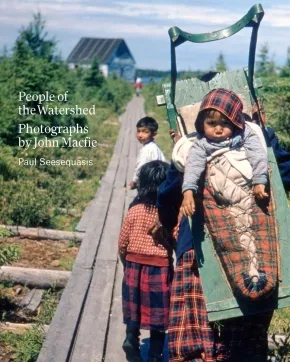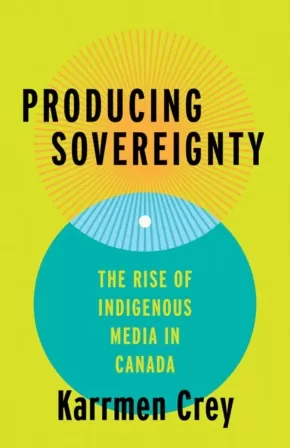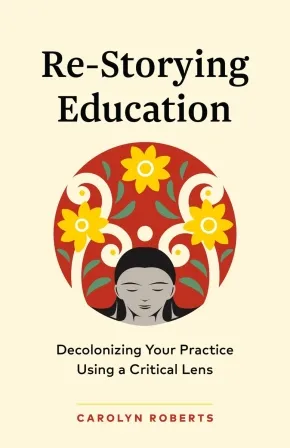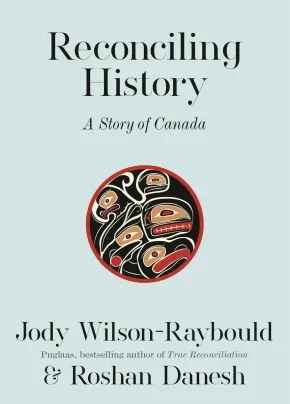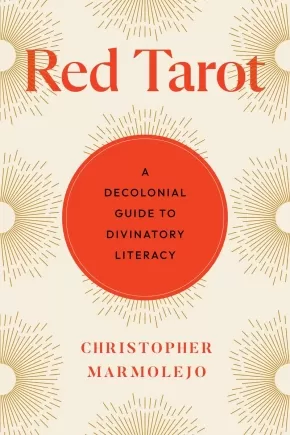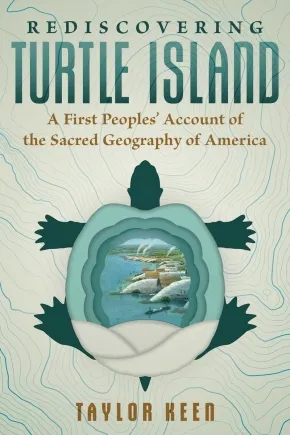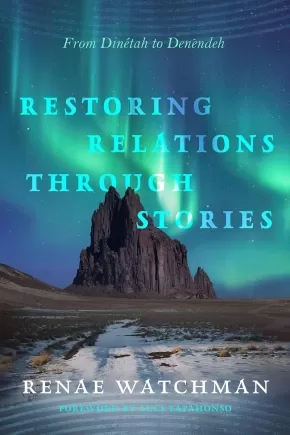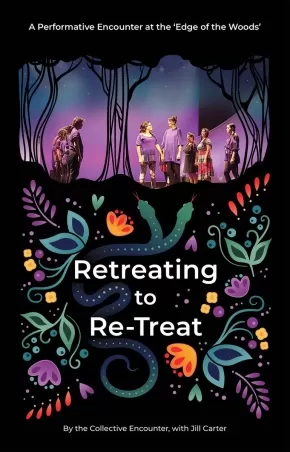Social and Cultural Studies
Synopsis:
For over twenty years, Mi’kmaw Elder Ellen Hunt has been identifying, researching and fighting to protect Mi’kmaw burial sites in Nova Scotia which have long been forgotten, neglected and destroyed.
Moved by a powerful call from her ancestors, Ellen Hunt’s work has taken her to burial sites ranging from Nova Scotia’s South Shore to Cape Breton. This memoir chronicles her childhood growing up in a Mi’kmaw community in Newfoundland and her activist work through to the present day. Ellen also shares the many challenges she has faced – from indifferent politicians to antagonistic locals.
This memoir incorporates stories about the long Mi’kmaw history of the sites Ellen has identified and the teachings of her Mi’kmaw ancestors which have shaped her life and her work.
Additional Information
6.02" x 9.01" | 20+ colour and black and white images | Paperback
Synopsis:
A moving collection of twenty powerful essays, poems, and more that capture and celebrate the modern Native American experience, featuring entries by Angeline Boulley, Madison Hammond, Kara Roselle Smith, and many more.
With heart, pathos, humor, and insight, twenty renowned writers, performers, athletes, and activists explore what it means to be Native American today. Through a series of essays and poems, these luminaries give voice to their individual experiences while shedding light on the depth and complexity of modern Native American identity, resiliency, and joy.
The topics are as fascinating and diverse as the creators. From Mato Wayuhi, award-winning composer of Reservation Dogs, honoring a friend who believed in his talent to New York Times bestselling author Angeline Boulley exploring what it means to feel Native enough, these entries are not only an exploration of community, they are also a call for a more just and equitable world, and a road map toward a brighter future.
Edited by IllumiNative, an organization dedicated to amplifying contemporary Native voices, My Life: Growing Up Native in America features contributions from Angeline Boulley, Philip J. Deloria, Eric Gansworth, Kimberly Guerrero, Somah Haaland, Madison Hammond, Nasugraq Rainey Hopson, Trudie Jackson, Princess Daazhraii Johnson, Lady Shug, Ahsaki Baa LaFrance-Chachere, Tai Leclaire, Cece Meadows, Sherri Mitchell, Charlie Amaya Scott, Kara Roselle Smith, Vera Starbard, Dash Turner, Crystal Wahpepah, and Mato Wayuhi.
Additional Information
224 pages | 5.50" x 8.37" | 16-pg b&w insert | Hardcover
Synopsis:
A user-friendly guide that teaches core Nakoda vocabulary and how to use it in conversation
Practising Nakoda contains basic Nakoda vocabulary, organized into 30 themes (such as animals, clothing, directions, and time) and divided into sections meant to enhance daily and ceremonial communication (including dances, ceremonies, and ceremonial clothing). The guide provides words for every theme from which the reader can forge a general view of word formation patterns. In a thematic dictionary, words are not organized alphabetically but are grouped according to the root element or their meaning. Since Nakoda is a polysynthetic language where words are often built up with many elements that attach to the root, this is a necessary format that enhances the learner’s “morphological awareness.” The guide will help learners identify the root of each word, along with the “morphemes,” critical to the successful learning of the Nakoda language, and the comprehension of complex vocabulary.
Reviews
"Nakón wico’i’e né uspénic’iciyac / Practising Nakoda: A Thematic Dictionary is a user-friendly dictionary created to support learners of the endangered Nakoda language. More than just a list of words, this book helps users understand how to build sentences and use the language in real-life situations, even without a fluent speaker to guide them. The chapters are organized by theme, making it easier for learners to focus on everyday topics and vocabulary. This dictionary is meant to be a practical starting point for those beginning their Nakoda language journey. It was created with the help of many different Nakoda speakers, whose voices and knowledge shaped the content. This dictionary can be used for self-study, in classrooms, or as a community resource to support language programs. Practising Nakoda is a helpful tool for anyone who wants to begin learning and using Nakoda in their daily life." - Jackie L., Educator & Indigenous Voice Consultant, Indigenous Books for Schools
Educator Information
Table of Contents
Foreword
Elements of Nakoda Grammar
Abbreviations
Greetings and Forms of Address
Human Body
Food and Drinks
Clothing and Getting Dressed
Living Arrangements
Human Characteristics
Feelings, Instincts, Emotions, and Motives
Thinking
Behaviour and Mental Disposition
Abilities and Talents
Expressing Thoughts and Feelings
Making Evaluations
Family and Friends
Social Relations
Education and Schooling
Professions and Trades
Agriculture, Gardening, and Ranching
Banking, Money, and Commercial Transactions
Leisure and Sports
Dances and Ceremonies
Spirituality and Culture
Communication
Nationalities and Settlements
Geography and Landscape
Weather, Natural Phenomena, and Substances
Fauna and Flora
Transportation and City Infrastructure
Quantities
Space and Time
Structural Words
Bibliography
About the Authors
This book is included in the Indigenous Books for Schools database from the Association of Book Publishers of BC. It is recommended for Grades 9 to 12 for Language studies.
Additional Information
216 pages | 5.51" x 7.51" | Paperback
Synopsis:
The incomparable first-hand account of the historic Truth and Reconciliation Commission of Canada told by one of the commissioners who led it.
The Truth and Reconciliation Commission was established to record the previously hidden history of more than a century of forced residential schooling for Indigenous children. Marie Wilson helped lead that work as one of just three commissioners. With the skills of a journalist, the heart of a mother and grandmother, and the insights of a life as the spouse of a residential school survivor, Commissioner Wilson guides readers through her years witnessing survivor testimony across the country, providing her unique perspective on the personal toll and enduring public value of the commission. In this unparalleled account, she honours the voices of survivors who have called Canada to attention, determined to heal, reclaim, and thrive.
Part vital public documentary, part probing memoir, North of Nowhere breathes fresh air into the possibilities of reconciliation amid the persistent legacy of residential schools. It is a call to everyone to view the important and continuing work of reconciliation not as an obligation but as a gift.
Reviews
"I found Marie Wilson's North of Nowhere profoundly moving and surprisingly optimistic. With humility and wisdom, she takes us behind the scenes of the Truth and Reconciliation Commission. As a non-Indigenous woman long settled in the North, she has a unique viewpoint, and she leavens an account of the traumatic intergenerational impact of residential schools with details from her own personal story. Wilson goes beyond the grief and misery triggered by the Truth aspect of the TRC to suggest the joy and laughter that true Reconciliation can produce in survivors. But reconciliation will be achieved only if we don't look away. North of Nowhere is a powerful book that shifted my perspective, and, thanks to Wilson's lucid prose, helps the rest of us glimpse what is needed." — Charlotte Gray (CM), author of Passionate Mothers, Powerful Sons: The Lives of Jennie Jerome Churchill and Sara Delano Roosevelt
"For anyone wanting a front row seat to the Spirit, the vision, and the mechanics of the Truth and Reconciliation Commission of Canada, North of Nowhere is definitely it. Commissioner Dr. Marie Wilson recounts and celebrates the courage of everyone involved in one of Canada's most important chapters of coming to terms with residential school Survivors and their families and their communities forever changed with a policy of cultural genocide. I hope everyone reads this and finds their way to support Survivors, their families, and their communities as they continue to reclaim so much of what was stolen. What a profound and riveting read." — Richard Van Camp, author of The Lesser Blessed and Godless but Loyal to Heaven
"The long-matured work of a true elder, this magnificent book is a sober masterpiece of sacred activism. It deserves to be read by everyone aghast at the chaos and cruelty of our world. Its level decency of tone, its lucidity, its determined hope in terrible circumstances both transmit and model those qualities we all now need to build a new world out of the smouldering ashes of the old." — Andrew Harvey, author of The Hope: A Guide to Sacred Activism
"In North of Nowhere, Marie Wilson honours her vow to residential school Survivors to 'do no harm' and to bear witness to and honour their experiences. Marie has achieved her purpose to educate readers and inspire reconciliation and, most importantly, hope. 'I see you. I hear you. I believe you. And I love you'-Marie's words as a Commissioner to Survivors set the tone for this very important book." — Perry Bellegarde, former National Chief of the Assembly of First Nations
"This book is one of the best I've ever read. It made me laugh, get emotional, and helped reset my journey on the role I need to play. As a child of residential school Survivors, I was motivated to continue to learn my language and strengthen my pride as an Indigenous person. Truth must come before reconciliation; this book will empower Canadians to focus on what we can control today when it comes to implementing the Calls to Action. This book advocates for building awareness, understanding, and long-term relationships between Indigenous people and Canadians. If every Canadian reads this book, the Truth and Reconciliation Calls to Action can be achieved." — Cadmus Delorme, former chief of Cowessess First Nation
"Journalist Marie Wilson brings us into the emotion-charged rooms, the sacred spaces of Canada's Truth and Reconciliation hearings. She listens with the heart of a mother, looking into the souls of the adult Survivors standing before her and seeing the children they once were. Though she holds nothing back, in the end this is a triumphant, restorative narrative-a testament to the healing that happens when we share our deepest, darkest truths." — Judy Rodgers, founding director of Images & Voice of Hope, board member of The Peace Studio
"North of Nowhere is the story of a national soul-searching, braided with Dr. Marie Wilson's own personal story and her unique perspective as a Truth and Reconciliation Commissioner. Every page tells a story. This is a book that is bound to ignite dialogue. It has been a catalyst that has been the spark for numerous visits, deep discussions, and reflections, which is why we wanted to write a collective review. Marie's writing had us thinking and talking about the stories, truths, and wisdom shared throughout the pages. Through her writing, Marie elicits emotional and insightful responses that move us along our own journeys of understanding the truth of Canada." — Shelagh Rogers and Monique Gray Smith
"Marie Wilson is the truth keeper entrusted with the accounts of the First Nations, Métis, and Inuit children who went to residential schools, the memories of those who did not make it home and the fate of us all if we do not learn from the past. The savagery of 'civilization' comes into stark relief as children emerge from the pages to awaken the national consciousness and render the TRC Calls to Action imperative." — Cindy Blackstock, executive director, First Nations Child & Family Caring Society
"Beautifully written, Marie Wilson's North of Nowhere is a stunning work of truth, power, and wisdom. An imperative read for all Canadians to understand the layers of shrapnel left by the residential school system that will leave you with emotion and hope. Wilson is an incredibly brilliant and gifted writer." — Angela Sterritt, author of Unbroken: My Fight for Survival, Hope, and Justice for Indigenous Women and Girls
Educator Information
Curriculum Connections: Social Science, Ethnic Studies, Canadian Studies, Indigenous STudies
Additional Information
384 pages | 6.00" x 9.00" | Hardcover
Synopsis:
Now You Know Me tells of a journey of understanding between two old friends who grew up in different worlds in the same small town of Powell River, BC, on traditional Tla’amin land. Joe Gallagher, who is Tla’amin, and John Matterson, who is white, were friends as teenagers but went their separate ways before reconnecting 35 years later and truly getting to know each other.
As John began to listen more deeply to Joe’s history, they journeyed together through the historic events and attitudes that deeply wounded the Tla’amin and their way of life. With each conversation, John’s understanding of Joe’s life and recognition of his own unearned advantages and blind participation in racism became clearer.
In their illuminating dialogue in Now You Know Me, we learn what it took for Joe to straddle two worlds while battling racism, a traumatic childhood, and his father’s warning that he couldn’t succeed in a white world without working twice as hard. Despite ongoing suffering from multigenerational harms, Joe garnered broad respect on his way to becoming CEO of a groundbreaking Indigenous-led health organization, bringing hope and a collaborative spirit to a revolution in health and wellness for BC First Nations.
Today, John is committed to ongoing learning and allyship, while Joe is called on by First Nations leaders as well as senior leaders in health and government as an able navigator of the movement toward Truth and Reconciliation.
Additional Information
304 pages | 5.50" x 8.50" | Paperback
Synopsis:
Of Living Stone: Perspectives on Continuous Knowledge and the Work of Vine Deloria, Jr. is a collection of new essays on the legacy of Vine Deloria, Jr., one of the most influential thinkers of our time. This insightful collection features more than thirty original pieces, bringing together Tribal leaders, artists, scientists, activists, scholars, legal experts, and humorists. A group of French scholars offers surprising perspectives on Deloria’s continuing global influence. Readers will find thoughtful and creative views on his wide-ranging and world-changing body of work. Some build upon his ideas while others offer important criticisms. In addition to its content, this volume is unique in that it was designed to center the traditional exercise of continuous knowledge whereby information is routinely shared, considered, and pragmatically adapted as it flows between generations. In this way, people, ideas and traditions remain alive and relevant—not set in stone —as the past is honored by those living in the present as they prepare for the future.
The book includes contributions from a number of remarkable individuals, including:
- Climate expert Margaret Redsteer (Crow)
- Melanie Yazzie (Diné), host of The Red Power Hour podcast
- Cheryl Crazy Bull (Sicangu Lakota), president of the American Indian College Fund
- Activists Faith Spotted Eagle (Yankton Dakota) and Lauren Schad (Cheyenne River Lakota)
- Writer and producer Migizi Pensoneau (Ponca/Ojibwe)
- Environmental scientists Kyle Whyte (Citizen Potawatomi) and Ryan Emanuel (Lumbee)
- Experts on Tribal Governance Deron Marquez (Yuhaaviatam of San Manuel), Frank Ettawageshik (Little Traverse Bay), Norbert Hill (Oneida), Megan Hill (Oneida), and Marty Case.
- Artists Cannupa Hanska Luger (MHA-Three Affiliated Tribes) and James Johnson (Tlingit)
- Legal Scholars Sarah Deer (Muscogee), Rebecca Tsosie (Yaqui descent), and Gabe Galanda (Round Valley)
- Archaeologist Paulette Steeves (Cree-Metis)
- Scholars of Indigenous Traditions Noenoe Silva (Kānaka Maoli), Natalie Avalos (Chicana of Mexican Indigenous descent), Tom Holm (Cherokee), and Greg Cajete (Tewa-Santa Clara Pueblo).
Time magazine named Vine Deloria, Jr. as one of the greatest thinkers of the twentieth century, and his research, writings, and teachings on history, law, religion, and science continue to influence generations of Indigenous peoples and their allies across the world.
Reviews
“For me as a young person in the 1980s and 1990s, Vine was the only stranger I thought of as family. He was funny and heart-stabbingly blunt. So we have Vine Deloria to thank for revitalizing Indigenous knowledge gathering. Inspired by Vine’s life work, Anishinaabe people now understand that we learn by listening (bzindamowin), observing (gnawaaminjigewin), and ceremony (manidookewin). We also know it’s important to have a LOT of fun (miiziiwapine). Of Living Stone is both a somber memorial and a raucous celebration of Vine’s work.”—Matthew Fletcher (Grand Traverse Band of Ottawa and Chippewa Indians), University of Michigan, and author of The Ghost Road
Additional Information
528 pages | 6.00" x 9.00" | Paperback
Synopsis:
Original People, Original Television is the behind-the-scenes account of a little known revolution in Canadian broadcasting—a journey begun in 1922 with Nanook of the North, wending its way across generations and the width and breadth of the traditional territories of the Inuit, First Nations and Métis; culminating in the 1999 launch of the world’s inaugural Indigenous led broadcast, the Aboriginal Peoples’ Television Network.
Additional Information
282 pages | 9.00" x 6.00" | b&w photos, index, bibliography | Special Edition | Paperback
Synopsis:
"John Macfie's vivid and stirring photographs show a way of life on full display - the world my ancestors inhabited and that my mom fondly described to me. It is a world that, shortly after these pictures were taken, ended. So distant and yet achingly familiar, these pictures feel like a visit home."- Jesse Wente, Anishinaabe broadcaster, arts leader, and author of Unreconciled: Family, Truth, and Indigenous Resistance
While working as a trapline manager in Northern Ontario during the 1950s and 1960s, John Macfie, a Canadian of Scottish heritage, formed deep and lasting relationships with the people of the Indigenous communities in the region. As he travelled the vast expanse of the Hudson Bay watershed, from Sandy Lake to Fort Severn to Moose Lake and as far south as Mattagami, he photographed the daily lives of Anishinaabe, Cree, and Anisininew communities, bearing witness to their adaptability and resilience during a time of tremendous change.
Macfie's photos, curated both in this volume and for an accompanying exhibition by the nipisihkopawiyiniw (Willow Cree) writer and journalist Paul Seesequasis, document ways of life firmly rooted in the pleasures of the land and the changing seasons. People of the Watershed builds on Seesequasis's visual reclamation work with his online Indigenous Archival Photo Project and his previous book, Blanket Toss Under Midnight Sun, serving to centre the stories and lives of the people featured in these compelling archival images.
Reviews
"The images reflect a sensitive eye and respectful approach to a solid documentary project." - The Globe and Mail
"Shines a light on the overlooked histories of Indigenous communities in northern Ontario." - APTN
Additional Information
192 pages | 8.01" x 9.99" | 100 colour and black and white photos | Paperback
Synopsis:
Exploring how Indigenous media has flourished across Canada from the 1990s to the present
In the early 1990s, Indigenous media experienced a boom across Canada, resulting in a vast landscape of film, TV, and digital media. Coinciding with a resurgence of Indigenous political activism, Indigenous media highlighted issues around sovereignty and Indigenous rights to broader audiences in Canada. In Producing Sovereignty, Karrmen Crey considers the conditions—social movements, state policy, and evolutions in technology—that enabled this proliferation.
Exploring the wide field of media culture institutions, Crey pays particular attention to those that Indigenous media makers engaged during this cultural moment, including state film agencies, arts organizations, provincial broadcasters, and more. Producing Sovereignty ranges from the formation of the Aboriginal Film and Video Art Alliance in the early 1990s and its partnership with the Banff Centre for the Arts to the Canadian Broadcasting Corporation’s 2016 production of Highway of Tears—an immersive 360-degree short film directed by Anishinaabe filmmaker Lisa Jackson—highlighting works by Indigenous creators along the way and situating Indigenous media within contexts that pay close attention to the role of media-producing institutions.
Importantly, Crey focuses on institutions with limited scholarly attention, shifting beyond the work of the National Film Board of Canada to explore lesser-known institutions such as educational broadcasters and independent production companies that create programming for the Aboriginal Peoples Television Network. Through its refusal to treat Indigenous media simply as a set of cultural aesthetics, Producing Sovereignty offers a revealing media history of this cultural moment.
Reviews
"Producing Sovereignty is a must-read for those interested in the theoretical fundamentals of Indigenous media studies. By unearthing and revealing the subjugated histories and materiality of Indigenous artists and filmmakers, Karrmen Crey provides a crucial lens into the co-constitutive production of Indigenous aesthetics as an outcome of institutional contestations."—Brendan Hokowhitu, University of Queensland
"One of the most engaging and sophisticated books in the field, Producing Sovereignty uses highly immersive case studies to locate Indigenous media within wider social movements and cultural developments in North America. Karrmen Crey speaks to the decolonizing force of Indigenous media—not only as expressions of Indigenous cultural sovereignty but as destabilizing forces within contemporary settler societies."—Marian Bredin, coeditor of Canadian Television: Text and Context
Additional Information
224 pages | 5.50" x 8.50" | 25 black and white illustrations | Paperback
Synopsis:
An invaluable resource for educators looking to actively participate in reshaping education to include historically silenced voices in the classroom.
Re-Storying Education is a process of dismantling old narratives taught in education and rebuilding new narratives that include all the voices that have created this place known as Canada today. This vital and timely book outlines how colonialism has shaped both the country and the public school system. Re-Storying Education uses an Indigenous lens, offering ways to put Indigenous education, history, and pedagogy into practice. It invites readers into an open dialogue in the pursuit of a more inclusive and just educational landscape.
Drawing from her own experiences as an Indigenous student, educator, and administrator, in public and band-operated school systems, Indigenous academic Carolyn Roberts offers a deep understanding of how to support educators with Indigenous education and to create a nurturing and inclusive environment for all students. Re-Storying Education brings wider perspectives, connections to the land and the people of this land, and a deeper understanding of how relationships to these can change the educational experience for all students.
Re-Storying Education contains valuable lesson and assessment ideas, fostering the development of a critical lens in education. Roberts offers questions for self-reflection, suggestions for professional action, recommended resources for further learning, personal stories and anecdotes, insights from her own decolonizing teaching practices, and playlists that reflect the spirit of the work and that uplift Indigenous voices.
This is a must-have resource for all educators and change-makers in education today!
Reviews
"A gentle yet thorough overview and introduction, Re-Storying Education is packed with history and context to help educators decolonize their practices. Carolyn Roberts has written an excellent resource for navigating often-fraught waters, turning potential struggle into a hopeful journey of discovery and reconciliation." — Eden Robinson, bestselling author of the Trickster trilogy
"Woven in these pages is a masterful contribution to the field of education and to those who work in educating hearts, minds and spirits. I found myself lit up, excited, eager to turn each page and also inspired to slow down, reflect and let all the beauty in the pages find their rightful place in my own learning. Carolyn invites us to go on a journey with her, to be in relationship with her as we learn, unlearn, relearn and ignite our excitement in the joy of education. Re-Storying Education is full of knowledge, wisdom, truths and stories and will influence education for generations to come." — Monique Gray Smith, bestselling author of I Hope
Additional Information
224 pages | 5.50" x 8.50" | Paperback
Synopsis:
From the #1 national bestselling author of 'Indian' in the Cabinet and True Reconciliation, a truly unique history of our land—powerful, devastating, remarkable—as told through the voices of both Indigenous and non-Indigenous peoples.
The totem pole forms the foundation for this unique and important oral history of Canada. Its goal is both toweringly ambitious and beautifully direct: To tell the story of this country in a way that prompts readers to look from different angles, to see its dimensions, its curves, and its cuts. To see that history has an arc, just as the totem pole rises, but to realize that it is also in the details along the way that important meanings are to be found. To recognize that the story of the past is always there to be retold and recast, and must be conveyed to generations to come. That in the act of re-telling, meaning is found, and strength is built.
When it comes to telling the history of Canada, and in particular the history of the relationship between Indigenous and non-Indigenous peoples, we need to accept that the way in which our history has traditionally been told has not been a common or shared enterprise. In many ways, it has been an exclusive and siloed one. Among the countless peoples and groups that make up this vast country, the voices and experiences of a few have too often dominated those of many others.
Reconciling History shares voices that have seldom been heard, and in this ground-breaking book they are telling and re-telling history from their perspectives. Born out of the oral history in True Reconciliation, and complemented throughout with stunning photography and art, Reconciling History takes this approach to telling our collective story to an entirely different level.
Additional Information
304 pages | 6.25" x 8.75" | Hardcover
Synopsis:
Designed to be used with any deck, Red Tarot is a radical praxis and decolonized oracle that moves beyond self-help and divination to reclaim tarot for liberation, self-determination, and collective healing.
Red Tarot speaks to anyone othered for their identity or ways of being or thinking—LGBTQIA2S+ and BIPOC folks in particular—presenting the tarot as a radical epistemology that shifts the authority of knowing into the hands of the people themselves.
Author Christopher Marmolejo frames literacy as key to liberation, and explores an understanding of tarot as critical literacy. They show how the cards can be read to subvert the dynamics of white supremacist-capitalist-imperialist-patriarchy, weaving historical context and spiritual practice into a comprehensive overview of tarot.
Situating tarot imagery within cosmologies outside the Hellenistic frame—Death as interpreted through the lens of Hindu goddess Chhinnamasta, the High Priestess through Aztec goddess Coyolxauhqui—Marmolejo’s Red Tarot is a profound act of native reclamation and liberation. Each card’s interpretation is further bolstered by the teachings of Toni Morrison, bell hooks, Paulo Freire, José Esteban Muñoz, and others, in an offering that integrates intersectional wisdom with the author’s divination practice—and reveals tarot as an essential language for liberation.
Reviews
“Red Tarot passionately reindigenizes the symbolism of each tarot card and demonstrates the importance of this reclamation. Along with illuminating bold interpretations of the tarot, it pulls the reader into each tarot narrative in a brilliant and poetic manner. I loved this book!”—Erika Buenaflor, MA, JD, author of Cleansing Rites of Curanderismo and Veneration Rites of Curanderismo
“Red Tarot is a volume that truly, as in its own words, readies its reader to come as ‘part prophet, part poet, part political participant.’ This is a generous book. Marmolejo has done something truly wonderful here. They have made a book that makes it possible for you to engage with the future in the best way possible which is with the feeling of blowing your brain hole open. Anyone who hungers for more possibility when faced with the prospect of reading the future should keep Red Tarot with them. I know that it will be very dear to me. Red Tarot shows you how to find a sense of almost unnerving freedom in the future. This book treats reading as a medicine.”—Alice Sparkly Kat, author of Postcolonial Astrology
“After a pandemic’s collective deadness, I’m looking for resources that help us all claim collective aliveness. You’re holding one of the finest contributions to help find a portal to Eros; the rapture of aliveness, and the transcendent support of red reading. Christopher Marmolejo’s Red Tarot is an invaluable, extensively researched tool that helps you remember the language, symbols, and fields of somatic and intuitive knowledge acquisition. It’s a highly integrative work; successfully, accessibly merging the best of Christopher’s teachers in the decolonial and divinatory fields. Red Tarot achieves the work’s goal of Indigenous reclamation, reimagining, and regeneration in this pivotal time.”—Colin Bedell, astrologer and founder of QueerCosmos
Additional Information
448 pages | 5.98" x 8.96" | Paperback
Synopsis:
An exploration of Indigenous cosmology and history in North America
• Examines the complexities of Indigenous legends and creation myths and reveals common oral traditions across much of North America
• Explores the history of Cahokia, the Mississippian Mound Builder Empire of 1050-1300 CE, told through the voice of Honga, a Native leader of the time
• Presents an Indigenous revisionist history regarding Thomas Jefferson, expansionist doctrine, and Manifest Destiny
While Western accounts of North American history traditionally start with European colonization, Indigenous histories of North America—or Turtle Island—stretch back millennia. Drawing on comparative analysis, firsthand Indigenous accounts, extensive historical writings, and his own experience, Omaha Tribal member, Cherokee citizen, and teacher Taylor Keen presents a comprehensive re-imagining of the ancient and more recent history of this continent’s oldest cultures. Keen reveals shared oral traditions across much of North America, including among the Algonquin, Athabascan, Sioux, Omaha, Ponca, Osage, Quapaw, and Kaw tribes. He explores the history of Cahokia, the Mississippian Mound Builder Empire of 1050–1300 CE. And he examines ancient earthen works and ceremonial sites of Turtle Island, revealing the Indigenous cosmology, sacred mathematics, and archaeoastronomy encoded in these places that artfully blend the movements of the sun, moon, and stars into the physical landscape.
Challenging the mainstream historical consensus, Keen presents an Indigenous revisionist history regarding Thomas Jefferson, expansionist doctrine, and Manifest Destiny. He reveals how, despite being displaced as the United States colonized westward, the Native peoples maintained their vision of an intrinsically shared humanity and the environmental responsibility found at the core of Indigenous mythology.
Building off a deep personal connection to the history and mythology of the First Peoples of the Americas, Taylor Keen gives renewed voice to the cultures of Turtle Island, revealing an alternative vision of the significance of our past and future presence here.
Reviews
“Brother Keen, with his infinite Indigenous and academic knowledge, brings forth amazing truths about ancient North American cultures the modern world was unaware of. Not only are the ancient earthworks extensive and scientifically and astronomically complex but Keen unveils they are all connected across the entire continent, mirroring the heavens. Simply incredible research.” — Scott Wolter, host of History 2 (H2) Channel’s America Unearthed, world-renowned forensic geol
“Careful analysis by Taylor Keen of the placement and designs of earthworks of the Indigenous people of North America reveals far more complex planning and design was involved than just random location selection of mounds for burials, as we were taught to think. His geographical analysis reveals the sacred earthworks designs were far more advanced and esoteric in nature, something he is uniquely qualified to understand as Indigenous himself and a member of several esoteric orders. He proves definitively the intricate level of knowledge of astronomy, heavenly body movements, mathematics, and cosmology involved in the creation of these earthworks, not only at a local level, but incredibly as long-range alignments as well. This revelation, Keen explains, was something that was dismissed and suppressed by early nineteenth-century archaeologists who breached and destroyed the sacred earthworks and burial mounds as part of the promotion of ‘manifest destiny,’ with the intent being justification of taking tribal lands for settlement. Keen’s incredibly important work gives a whole new perspective on the history of North America.” — Janet Wolter, coauthor of America: Nation of the Goddess
“The official history of the United States begins with Spanish contact in the late fifteenth century. The oral traditions and legends of the various Native peoples of North America, however, stretch back much earlier, into the opaque mists of preliterate times. With a member of the Earthen Bison Clan of the Omaha Tribe to serve as our guide, Rediscovering Turtle Island leads the reader along near-forgotten, overgrown paths that twist and turn throughout a resacralized landscape, decorated with ancient landmarks, populated with whispering ghosts and supernatural beings. The sacred geography of America will never again appear the same.” — P. D. Newman, author of Native American Shamanism and the Afterlife Journey in the Mississippi Valle
“What could be more fascinating than the origin of mankind itself? The premise is staggering and the consequences far-reaching. Keen’s hard work pays off immensely in Rediscovering Turtle Island, and readers will be gripped by that experience on every page.” — Sidian M.S. Jones, coauthor of The Voice of Rolling Thunder
Additional Information
208 pages | 6.00" x 9.00" | 70 b&w illustrations | Paperback
Synopsis:
Restoring Relations Through Stories introduces, synthesizes, and analyzes traditional stories by Diné and Dene storytellers in orature and film. The book conceptualizes narrative autonomy as hane’tonomy and visual storytelling from a Diné perspective, offering a map for re-storying that resists inauthentic and misappropriated stories. Watchman centres Indigenous narratives and examines how these narratives are tied to land and relations.
In the book’s final movement, the author explores the power of story to forge ancestral and kinship ties between the Diné and Dene, across time and space, through re-storying of relations.
Reviews
“Watchman shows how the old stories, maintained over centuries . . . tie together the Diné and Dene through ancestral and linguistic connections. The works that are surveyed herein reinforce the import of remembering, retelling, and revising the old stories so that they are germane today.” —Luci Tapahonso, inaugural Poet Laureat of the Navajo Nation
“Restoring Relations Through Stories shows how land-based storying among Diné and Dene peoples is strong and continues in the twenty-first century and beyond. It demonstrates how Indigenous peoples continue to remain connected to the land and sustain distinctive ways of life through their narratives, lands, and filmmaking.” —Lloyd L. Lee, author of Diné Identity in a Twenty-First Century World
“Renae Watchman’s Restoring Relations Through Stories introduces readers to the powerful force of ‘Hane’tonomy’ and the work of Diné creatives who refuse misappropriated and inauthentic views by advancing decisive versions of their world. Hane’tonomy provides us all with a new framework for understanding complex works such as Sydney Freeland’s Drunktown’s Finest, Blackhorse Lowe’s 5th World, or Hollywood’s deracinating obsession with the Navajo Nation and Shiprock as a backdrop. It moves toward a meaningful, though potentially daunting, provocation in forging new connections through restorying with ancestral kin of the Diné in present-day Canada.” —Jeff Berglund, co-editor of The Diné Reader: An Anthology of Navajo Literature
“An affirmation of our continued connections to the Mother Earth through prayers, songs, and stories. The connections to each other as Diné and Dene are remembered in Watchman’s stories of placemaking.” —Jennifer Nez Denetdale, professor and Chair of American Studies, University of New Mexico
Additional Information
356 pages | 5.00" x 8.00"| Paperback
Synopsis:
In 2019, a group of scholar-artists led by Jill Carter stood with their audience in a liminal space at the 'edge of the woods'—a space between now and then, a space between now and later. Together, they engaged in a survivance intervention: an Indigenous reclamation of territory, using Storyweaving practices rooted in personal connections to the land as a method of restor(y)ing treaty relationships.
Retreating to Re-Treat documents both their artistic offering and creation process, offered in the spirit of knowledge-sharing and enriching scholarship around collaborative practices. By revealing their unique and still-developing method for addressing a fraught and tangled (hi)story, the Collective Encounter invites readers to join them as we mediate those sites of profound experiences and renewal—sites in which the project of conciliation might truly begin.
Additional Information
144 pages | 5.37" x 8.38" | Paperback

